Politics
Tribunal: Anxiety As Nigerians Await Judgement Day
Many Nigerians believed that INEC had disregarded a crucial constitutional criterion by making this statement, which specifies that a candidate must receive 25% of the votes cast…
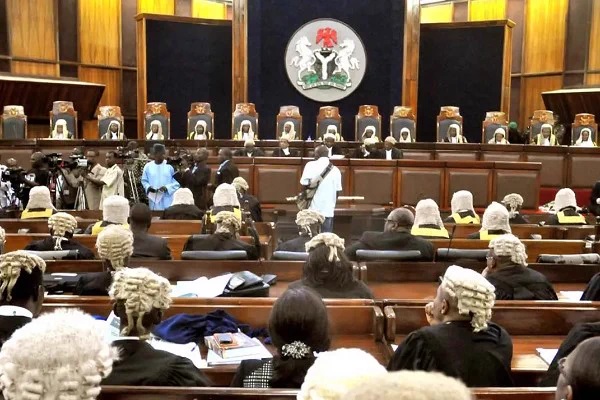
As the five judges who heard the election petitions filed by the candidates of the Peoples Democratic Party (PDP), Alhaji Atiku Abubakar, and the Labour Party (LP), Mr. Peter Obi, at the presidential election petition tribunal, challenging President Bola Tinubu’s victory in the February 25 presidential election, get ready to issue their ruling on the matter, Nigerians at home and in the Diaspora are filled with great expectations that the judges would rule based on the law.
Remember how the All Progressives Congress (APC) candidate Asiwaju Bola Ahmed Tinubu was declared the winner of the presidential election on February 25? That announcement was made by the Independent National Electoral Commission (INEC) on March 1, four days later.
Atiku Abubakar of the Peoples Democratic Party (PDP), who finished in second place with 6,984,520 votes, and Peter Obi of the Labour Party (LP), who came in third place with 6,101,533 votes, were both defeated by Tinubu, who received 8,794,726 votes, according to INEC Chairman Prof. Mahmood Yakubu.
The INEC Chairman emphasized that Tinubu had achieved the first constitutional criteria of receiving the most votes among all contenders on that basis. In addition, he claimed to have received more than 25% of the votes cast in 30 states, as opposed to the 24 necessary under the constitution.
Many Nigerians believed that INEC had disregarded a crucial constitutional criterion by making this statement, which specifies that a candidate must receive 25% of the votes cast in the Federal Capital Territory (FCT), Abuja, to be declared president of Nigeria.
According to the INEC records, only the LP candidate, who finished third, was qualified. Atiku and Tinubu didn’t. Although Tinubu received the most votes cast in the election and received 25% or more in more than 24 states of the federation, INEC did not think that was sufficient evidence to overturn his victory.
That statement, however, did not sit well with the LP candidate and his PDP rival since they believed that in addition to Tinubu not receiving the minimum 25% of the votes cast in the FCT as required by the law, other irregularities marred the election. They believed Tinubu didn’t win and that INEC was wrong to have declared him as the winner.
And then both candidates filed legal complaints with the Presidential Election Petition Tribunal (PEPT).
In order to contest Tinubu’s victory in the presidential election on February 25, Obi filed a petition with the Presidential Election Petition Tribunal on March 21, 2023.
DON’T MISS: Election Petition Judgment: Why Supreme Court Can’t Overturn Tinubu’s Disqualification
He claimed that there were numerous irregularities in the election, including claims that Tinubu and his running mate, Kashim Shettima, were not initially eligible to run for office. These irregularities included rigging and manipulation of the election results, voter intimidation and suppression, destruction of ballot boxes and papers, and thuggery.
Additionally, he claimed that Tinubu did not receive the majority of valid votes cast in the election or receive 25% of the votes cast in the Federal Capital Territory (FCT), Abuja, which is a constitutional prerequisite for being elected president of Nigeria. He also claimed that there were significant legal violations in the way the election was conducted.
Obi’s first ground for disqualification was based on the argument that Tinubu was ineligible to run for president at the time of the election because he had been fined $460,000 for a drug trafficking offense by the Northern District of Illinois, Eastern Division, in case N0:93C 4483 between the United States of America and Tinubu.
The second reason for non-qualification, in Obi’s opinion, was that Kashim Shettima, Tinubu’s running mate, received nominations for the vice-presidency and the Borno Central senatorial seats in the same election cycle.
Obi further argued that Tinubu was not legitimately elected by a majority of the legal votes cast in at least two-thirds of the federation’s states and the Federal Capital Territory (FCT), Abuja.
He argued that Tinubu was ineligible to be proclaimed winner of the election because he did not receive one-quarter of the valid votes cast in the FCT.
He sought the court to rule that Tinubu and his running companion, Shettima, were ineligible to run in the presidential election on February 25 and that Tinubu did not receive a majority of the valid votes cast in the election in his two main requests.
After deducting Tinubu’s results for allegedly illegitimate votes, he petitioned the court to rule that he had satisfied the constitutional conditions to be proclaimed the winner of the presidential election held on February 25, 2023.
He again requested the court to declare Tinubu’s victory void since he fell short of receiving one-fourth of the legal votes cast in the Federal Capital Territory (FCT), Abuja, in his second main prayer.
He reiterated in his fourth prayer that he won the election because he received the majority of the valid ballots cast on February 25.
Therefore, he requested that the court name him as the next president and direct the INEC to grant him a certificate of return. Additionally, he urged the court to revoke Tinubu’s wrongly-issued certificate of return.
On the same day, March 21, the PDP candidate Atiku also submitted a petition contesting Tinubu’s election. Atiku requested in his appeal that the presidential election court either declare him the winner of the election for president held on February 25 or declare the election invalid and order a rerun.
He presented a ton of election paperwork and 27 witnesses to support his claims.
As he was drawing to a close, Atiku prayed, among other things, that Tinubu was not properly elected by a majority of valid votes cast, making his victory illegal, wrongful, and unconstitutional, and that it should be revoked; that at the time of the election, Tinubu was ineligible to run in the said election; and that the election should be annulled, the Electoral Act and Constitution, which mandate that Tinubu receive not less than one-quarter of the legitimate votes cast in the election in each of at least two-thirds of the states in the federation and the Federal Capital Territory, Abuja, meant that the INEC’s return of Tinubu was wrongful, unlawful, undue, null, and void, and that the court should declare him the winner as such he scored the majority of lawful votes cast at the presidential election among others.
DON’T MISS: Falana Clears Controversy On FCT 25% Vote, Says Abuja Taken As 37th State
He additionally requested that the court order the electoral authority to hold a second election (run-off) between him and Tinubu as a backup plan.
The INEC, the APC, Tinubu, and Shettima, the respondents in this matter, asked the tribunal for one week to open their defense after closing their cases. The five-member panel led by Justice Haruna Tsammani granted their request and set July 3 as the date for them to open their cases.
However, as their defense came to a close, Tinubu and Shettima, along with their party, the APC, submitted a number of papers and called just one witness to support their counterarguments to those made by Atiku and Obi. Their attorneys were Wole Olanipekun and Lateef Fagbemi.
For instance, they said that the argument regarding the 25% of votes cast in the FCT is nonsensical because it violates a clear constitutional prohibition.
“The FCT must be treated as if it were a State. We submit that the case for non-compliance has not been made, the FCT argument has to fall flat,” the lawyers argued, praying the court to dismiss the petition.
In the meantime, Tinubu and his party, the APC, informed the tribunal that, should a run-off be required, LP’s Obi should not participate in it. They contend that because Obi’s name was omitted from the membership registration given to the INEC before the election, he was ineligible to fly the LP’s flag.
The nearly three months’ worth of legal fireworks were put to rest in the court of the five-man panel on Tuesday, August 1 with the conclusion of all parties’ arguments. The panel would then render its decision before September 16, when the suit is anticipated to expire. Although the petitions were submitted on March 21, the actual lawsuit hearing didn’t start until May lasting for three months.
The parties and Nigerians were informed by the esteemed jurists at the conclusion of the arguments that they will be informed of the day of judgment in due course.
Discussions and thoughts on the likely conclusion have not stopped, though, as Nigerians wait in a state of stress, anxiety, and high hopes for the tribunal’s decision.
Some people have voiced concern that there might still be some protests, whichever way the verdict is rendered.
However, there are many who have openly and frankly counseled the Judges to stay steadfast, unwavering, and brave and to render their decisions based on the facts and numbers in front of them, rather than on technicalities.
Hon. Yusuf Shehu, an APC leader and former member of the Katsina State House of Assembly, has refused to acknowledge that judges lack the ability to render just judgments.
He thinks the judges would do what they were told and surprise those who had given up on them. He was among those who counseled judges to consider the issues at hand thoughtfully and provide decisions without partiality or fear.
He said: “I have always maintained that justice is truth, transparency, honesty, and giving right to those who deserve it. So, I advise the judges handling all cases, not only the election petition cases, to be above board and do the right thing.
“They should listen to the doctrine of their vocation. I believe in the Nigerian judicial system and as I said earlier, justice is doing the right thing.”
He reminded the judges that they would face judgment from a different court in the afterlife.
“Therefore, they have a great responsibility to do what is right without fear or favour, so that democracy can thrive in Nigeria.
“The Nigerian judges have done their best. We have commended them in so many instances, where they upturned elections in favour of the opposition and against the ruling party. They should continue on the same path now by looking at all the evidence before them as they pass their judgement.
“They should be able to make a decision that will be accepted by the majority of Nigerians and people of other countries who are watching us. That is the expectations of Nigerians from them,” he stated.
Again, Dr. Pogu Bitrus, president of the Middle Belt Forum (MBF), is of the opinion that judges would not yield to pressures because they understand that the law is the final arbiter and the last hope of the average person.
DON’T MISS: 2023 Presidential Poll: 4 Ways Peter Obi Proved He Won, 4 Possible Judgements From PEP Tribunal
“Nigerians believe that all those injustices, abnormalities, and disregards for constitutionality that the INEC has done or committed would be exposed and judgement given appropriately and accordingly.
“Somebody walks in, changes results from the polling units, destroys result sheets and refuses to upload results and others, the laws of the nation are so clear on some of these things. And we believe that the Judges will do the needful. They will do the right thing and make a pronouncement that will save the nation because today, our hope is on them.
“The INEC has done the wrong thing and that is why we are in court. If the right thing was done and the right person declared after the right thing had been done, I believe some people will not even petition or go to court but they are in court because they believe that the wrong things were done by INEC,” he claimed.
He added: “Some people believe that the constitutional requirement for someone to be president was not there, yet the INEC pronounced somebody the president.
“They know the law requires that a candidate needs 25 percent votes in the FCT to be president; so, let us not deceive ourselves. Nigerians are expecting the right thing to be done by giving them the right judgement, and we believe that they will do the right thing.”
Lawyer and public affairs analyst Mr. Marcellus Onah thinks that because Nigerians are living through such difficult times, they would not want the judges to play games with their future. He thinks that even judges could gauge the political climate of the nation and would refrain from taking any actions that may jeopardize the tenuous calm.
He also thinks that the judges will render a decision after considering the evidence.
“Many people have lost faith in the judiciary, so this is a great opportunity for them to prove the naysayers wrong,” he stated.



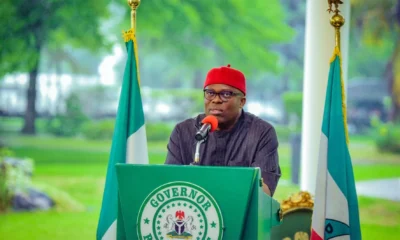

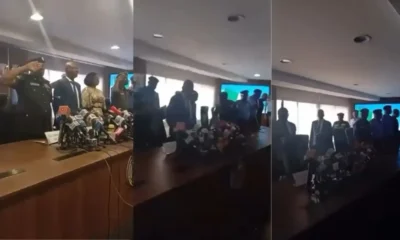

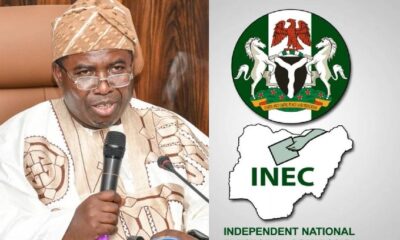



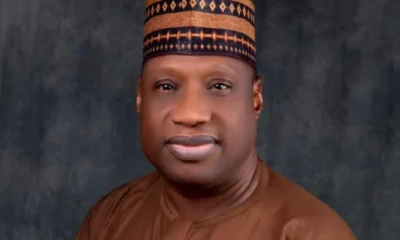



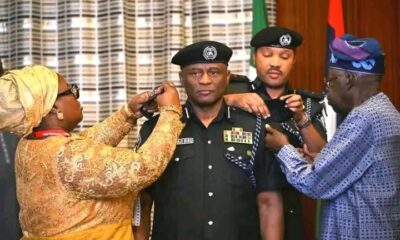

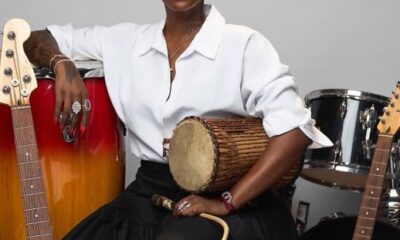

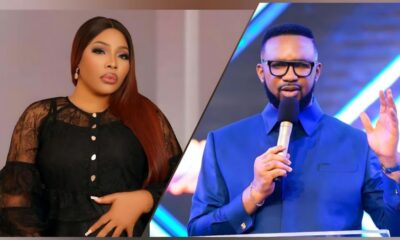

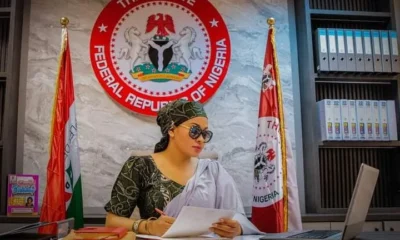

You must be logged in to post a comment Login